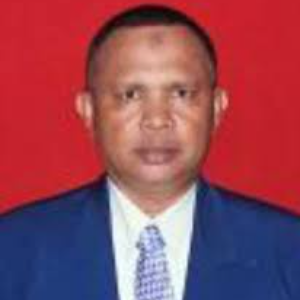Title : Spatio-temporal optimization of food crop land based on pedo-agroclimate at suboptimal land using multicriteria approach in Buton district, Southeast Sulawesi Indonesia
Abstract:
This research aimed to: (1) evaluate the availability of potential land and determine the suitability class for the development of food crops; (2) evaluate and determine the major and prime food crops; (3) identify the farmingbased socio-cultural and economic characteristics, and utilize them as guidance in dealing with temporal climatic change; (4) evaluate and determine the prioritized major food crops based on multi-criteria approach; (5) develop planting management, and land improvement and management, through the input of suitable location-specific technologies, to be able to solve the challenges for the development of major food crops that are more productive and sustainable. This research was regional based, using overlaid maps of thematic lands, conducted on dry-land area with dry-climate at the main region of Buton District, and based on a two-steps land evaluation approach (FAO, 1976). The research method used was a spatial research method GIS. The research had three main activities: data collection, evaluation, and mapping. Data collection included data on land biophysic, climate, and farming-based socio-culture and economic, using survey method. Land evaluation was conducted based on FAO method (1976) and Djaenuddin et al. (2011). The major food crops were determined using LQ method, and the prioritized food crops were determined using MCDM method through the application of AHP, and then mapping. Research results showed that: (1) the main region of Buton District had relatively varied characteristics of land biophysic, climate, socio-culture and economic, (2) potential land for the development of food crops was 74,664.64 ha, where the land suitability level of S2 (moderately suitable) of 5,096.52 ha, S3 (marginally suitable) of 44,521.38 ha, and the rest was N1 (not suitable) and N2 (very not suitable), (3) there were eight major food crops in the research area, namely: cassava, soybean, upland rice, sweet potato, ground nut, maize, green bean, and paddy rice, (4) prime food crops in research area were varied among regions (10 sub-districts), however, in general, it was concluded that there were four prime food crops, namely: cassava, maize, upland rice, and paddy rice, (5) the management for planting, improvement and land management were by the application of multiple cropping system, planting diversification, and appropriate planting date for the period of December, January, February, and March, using drought resistant cultivar, and several other efforts for adaptation and conservation, such as mulching and cover crops, to deal with climate change. These were conducted to maintain the land and crop productivity, and the sustainable food availability.



